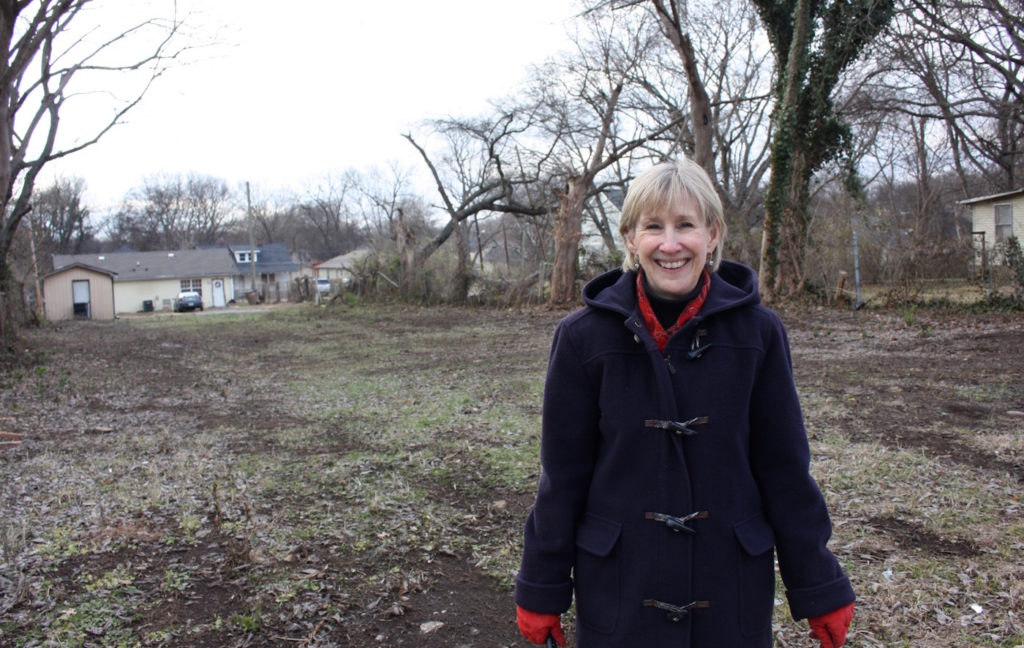
After years of talking about affordable housing in Nashville, the buzzword has turned into action — with city-funded efforts finally leading to some new rooftops. A record level of $10 million available through the Barnes Housing Trust Fund has led to a wave of interest from a broad range of developers.
Among them is Kay Bowers, director of
New Level Community Development Corporation, which is the affordable housing and financial literacy wing of Mt. Zion Church.
Her group is one of a few that received Barnes Fund grants — and
donated Metro lots — in the first two rounds of the program, which started small in 2013.
“The idea is to keep the property affordable long term, so that we don’t lose so much housing stock. To kind of stop the bleeding,” she said.
They’ll soon break ground on a three-bedroom home on a vacant lot on 11
th Avenue in North Nashville, just off Buchanan Street (
see housing stats for this area). From her lot, she can see a row of newly built homes that replaced a half dozen that were demolished.
“We’ve lost a lot of modest, lower-income housing — it’s gone,” Bowers said. “And now the housing that’s gone up, the prices are well over $300,000.”
She sees Nashville losing thousands of homes for the working-class employees of grocery stores, hotels and even the Metro government.
Travis Grimes, who lives across the street from New Level’s lot on 11th Avenue, nods along with Bowers.
“Every day I get something in the mail, they want to buy my house,” he said. “I don’t want to sell.”
Grimes, 60, has lived on the block for five decades.
“I’ve seen it change. When we moved here, we were the fifth black family on this block in March of 1965. And I saw it go all black, and change back, going back to white now,” he said.
He swaps stories with Bowers about who has left the block and the going rate for the properties.

Participants with New Level CDC earn less than $50,000 per year and go through first-time homebuyer classes.
“The people that come to us … quite frankly, we’re helping them to look in other counties,” Bower said, “because that’s where the housing is more affordable.”
All of the change is what prompted Metro to create the Barnes Housing Fund in 2013 to help pay for projects that must sell or rent below the market rate. The initial $5 million helped nonprofits get started on
about 100 units.
Starting in 2016, twice as much became available. And there’s more flexibility in what it can pay for, said Adriane Harris, the mayor’s advisor on affordable housing.
“I’ve worked in affordable housing for nearly 10 years and I have not seen the level of interest like this,” she said.
In addition to building homes and apartments, the Barnes Fund can now aid with home rehabilitations and to help nonprofits cover operational costs — part of a movement to build capacity within the non-profit development community.
We received an incredible 21 Barnes Fund Affordable Housing Applications this round- the most ever! Thanks to all who applied.— Megan Barry (@MayorMeganBarry)
November 14, 2016
The changes led to a surge of first-time applicants, including private developers teaming up with nonprofits. Altogether, 21 proposals came in during the latest round, far outpacing the amount of funding available.
The Barnes Fund applicants should find out this month if they’ve been chosen.


